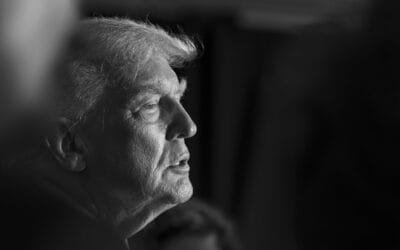In addition, those familiar with my podcast and writings know that I agree with Schwartz’s condemnation, in an article he posted yesterday on his blog, of the NSA’s indiscriminate surveillance programs. However, I disagree with his view, stated in that article, that “what Edward Snowden has done is worse.”
Schwartz questions Snowden’s commitment to the principle of “the individual’s right to be free from a coercive state” for a few reasons.
First, he notes that Snowden stole over one million classified documents, many of which concern legitimate NSA surveillance programs. But I doubt that Snowden, working covertly, had the luxury of sifting through the million-plus potentially relevant documents. He may have had a window of only a very few minutes to download what he needed. Moreover, Snowden has given permission for only a fraction of the total documents to be released and Glenn Greenwald has said that he and the other journalists have heeded Snowden’s wishes (more on Greenwald in a minute). Finally, it may be true that revealing information about the NSA’s methods — some of which it uses legitimately — could make a terrorist’s job easier. But if revealing those methods is necessary to alert the American people to the injustice committed by the NSA, then so be it.
Schwartz writes that, when Snowden went to Hong Kong, he “identified for Chinese officials which of their computers had been penetrated by the NSA.” I did a brief Google search on this and found this article, in which we learn that Snowden spoke to the Hong Kong press about NSA monitoring of computers in Hong Kong and mainland China, but I didn’t see anything about Snowden indicating, to Chinese officials, which specific computers had been hacked. As for “cozy[ing] up to rulers of . . . police states” (Schwartz quotes Snowden praising several of these), he unfortunately had no choice. It is only that type of state that entertained, in any serious way, Snowden’s request for asylum. Early on, Snowden said he had hoped to go to Iceland, and in later interviews he said he sent requests to numerous countries. But I am unaware of any semi-free state in the world that offered to take Snowden in, much less give him safe passage.
Finally, Schwartz criticizes Snowden’s choice of Greenwald as the journalist to whom he entrusted the stolen documents. Snowden decided, I think reasonably, that the only way to fight the NSA’s unjust surveillance programs was to publicize their existence via the press. Snowden has spoken repeatedly about his attempts to complain about the programs via the proper chain of command, as well as the fact that the whistleblower statutes that Obama keeps talking about do not protect contractors like Snowden. So Snowden needed to leave the country, and then find a sympathetic member of the press, one with journalistic integrity. I don’t know of a non-leftist journalist who would (1) agree with Snowden that what the NSA is doing is wrong and be willing to travel to Hong Kong to meet him, and (2) have the position and contacts necessary to broadly disseminate the information. Greg Gutfeld and Ambassador John Bolton, for example, are two of the better libertarian-conservative commentators on Fox News. Both Tammy Bruce and I were surprised when both of these men came out in favor of the NSA bulk metadata collection programs and, consequently, against Snowden. (You can find my interview of Ambassador Bolton, in which we discussed Bolton’s condemnation of Snowden, here.)
I believe Snowden allied himself with Greenwald for the limited purpose of publicizing the NSA’s unjust, indiscriminate surveillance programs. In fact, Greenwald said that Snowden put restrictions on the release of the data with which he, Greenwald, disagreed, but nonetheless honored as a matter of journalistic integrity.
I am no fan of Ron Paul, and I disagree with some Snowden asides that sound like they’re right out of Paul’s foreign policy. But I have not seen anything that I believe Snowden has done with the intention of undermining a proper policy of self-defense. So far as I can tell, all has been incidental to the actions one in Snowden’s context would take if he wanted to uphold “the individual’s right to be free from a coercive state,” but not martyr himself completely in the process.
For more on Snowden as hero or traitor, listen to Leonard Peikoff’s podcasts here, here and here.










